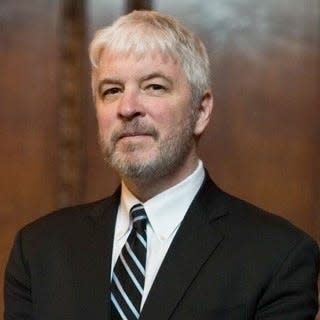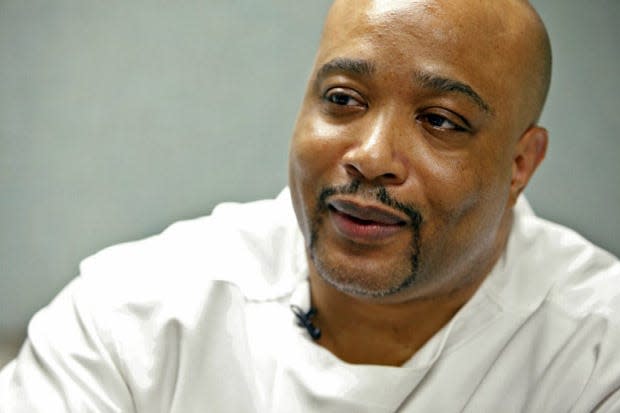Probing convictions the way Kim Kardashian did Kevin Keith's, right to do, Ohio justice says
Michael P. Donnelly is an associate justice of the Supreme Court of Ohio. He recently served on Ohio’s Task Force on Conviction Integrity and Postconviction Review, which was comprised of judges, attorneys, legislators, and other stakeholders. The Task Force delivered recommendations for changes in Ohio’s criminal justice system, designed to reduce the possibility of wrongful convictions and ensure convictions are reliable.
When there’s evidence of a wrongful conviction, people feel they must choose whether to side with the victim or with the defendant.
To be on the side of justice, this is not the choice we must make. We can support the victims of crime at the same time that we demand the system get it right.
Theodore Decker:Ohio should adopt task force recommendations on wrongful convictions | Theodore Decker
This should be an easy premise to support. But it gets complicated when a victim’s memory or belief is that the right person is behind bars, despite the fact that new evidence indicates it could be a wrongful conviction.
It is never the victims’ responsibility to solve the crime.
It is their job to live, to heal.
It is the government’s job to investigate thoroughly and only indict someone once they have all of the facts. It is the government’s job to properly collect evidence and ensure that it is untainted.

And when the government fails to do its job, we should not stand by and let them use the victims to validate a conviction that was faulty from the start.
We need to find a way to support the victims, while also seeking the justice that should have occurred at the time of trial. We need to understand how memory works, how trauma affects people’s memories and responses, and how contamination of memory affects witnesses.
We need to support victims, but we need to correct our mistakes when we convict the wrong person.
More:Ohio man wins $45 million in lawsuit after being wrongfully imprisoned for 20 years
The Kevin Keith case

No one wants victims to be re-traumatized by the revisiting of the case in court, and that is precisely why it is crucial for the government to take the time and care to get it right the first time. Regardless, when the wrong person is locked up, the true perpetrator remains free to harm again.
More:Kim Kardashian takes on the case of Kevin Keith case in new podcast 'The System'
We don’t do anyone any favors when we ignore the evidence because we favor finality over true justice.
By now, many people have listened to the podcast "Kim Kardashian’s The System: The Case of Kevin Keith."
The surviving victims believe their memory that Kevin Keith was the person who shot them. But they don’t have to be lying for Keith to be innocent.
We should never blame the victims for their firmly held beliefs, and neither do we need to assume that their firmly held beliefs mean the system got it right when someone was convicted.
In 1989 the first wrongfully convicted individual was exonerated with the help of DNA technology. Prior to that, only 418 exonerations had occurred in our country’s entire history.
Since that time, 3,299 exonerations have occurred, according to the National Registry of Exonerations. Each of those cases involved victims, juries, and judges who at one time were convinced that the system got it right.
Questioning whether the system got it wrong does not devalue those individuals and keeping the wrong person in prison does not advance victims’ rights.
Our collective goal should be to find the truth, and in doing so we can help both the victims of crime and those who have been wrongfully convicted. Let us not fall into the trap of making a choice we don’t have to make.
Michael P. Donnelly is an associate justice of the Supreme Court of Ohio. He recently served on Ohio’s Task Force on Conviction Integrity and Postconviction Review, which was comprised of judges, attorneys, legislators, and other stakeholders. The Task Force delivered recommendations for changes in Ohio’s criminal justice system, designed to reduce the possibility of wrongful convictions and ensure convictions are reliable.
Those recommendations can be found here: www.supremecourt.ohio.gov/docs/Boards/CIPR/Report.pdf.
This article originally appeared on The Columbus Dispatch: Kevin Keith case. Truth should be goal of conviction questioned by Kim Kardashian| Opinion
